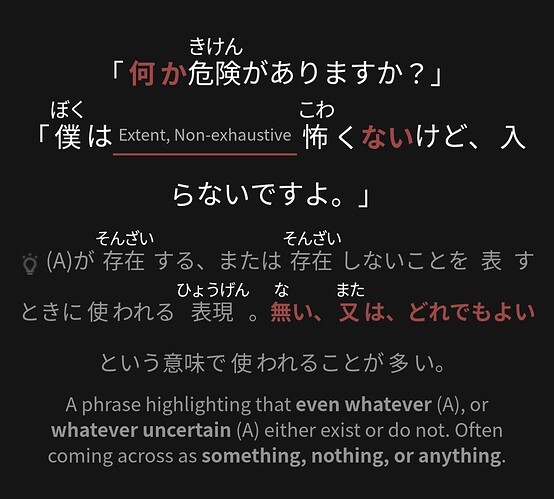Hey and welcome on the community forums 
This is a very, very good question. It is more about the English approximation of Japanese, rather than Japanese itself though.
English:
Japanese:
-
何か is used in affirmative sentences and questions, so in affirmative ones, it is translated as something, and in questions, it can be translated as anything
-
何も is generally used in negative sentences, so it can be translated as anything or nothing
-
何でも is generally used in affirmative sentences and means everything
More details about 何も、何でも、何か:
Basically adding も to question word (interrogative word) in negative sentences expresses total negation.
何も知らなかった。
I didn’t know anything.
も can be also added to question word in positive sentences, meaning that it applies to all cases. Though 何 is a bit of exception and 何も is very often used in negative sentences and 何でも in positive ones. Though you can see 何でも (fairly common) in negative ones and 何も in positive (fairly rare). いつも and others expressions like 誰も are used equally often in negative/positive sentences.
先輩はいつも助けてくれる。
Senpai always helps me.
Adding か (which expresses doubt) to an interrogative word means that the thing is unspecified or unknown. It is not definite.
ハルヒ消失とその行動の中に何か関係があるだろう。
There probably is some kind of connection between the disappearance of Haruhi and that activity.
(何か+noun means some kind of…)
That is basically all, I hope it helps.
Cheers,





